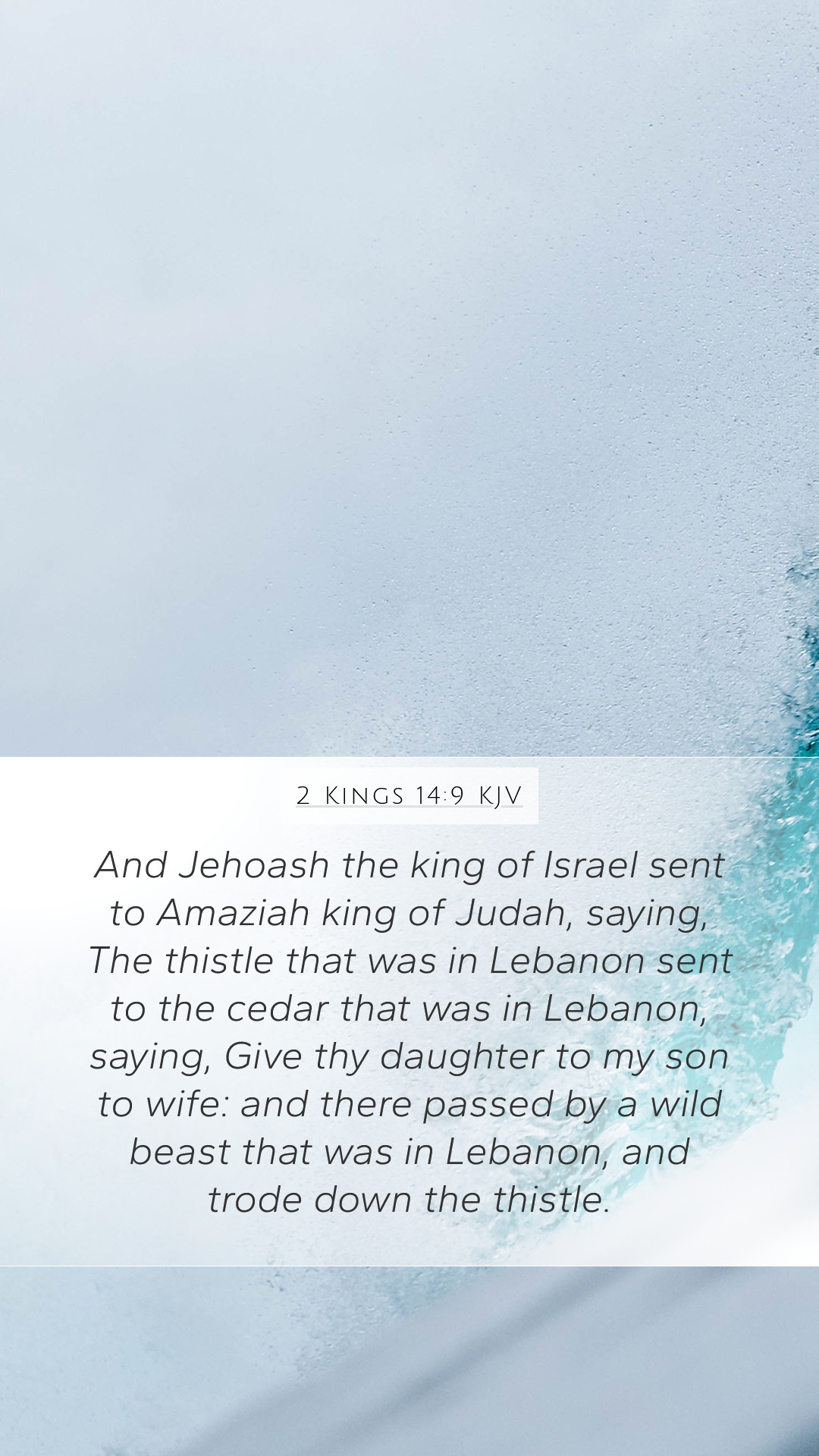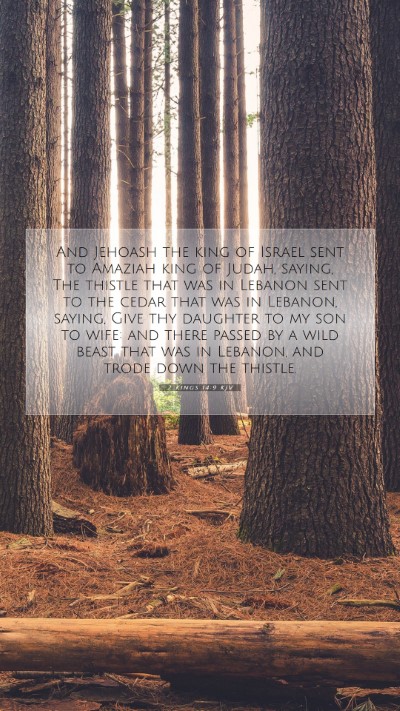Understanding 2 Kings 14:9: A Comprehensive Commentary
Bible Verse: 2 Kings 14:9 (KJV) - "And Jehoash the king of Israel sent to Amaziah king of Judah, saying, The thistle that was in Lebanon sent to the cedar that was in Lebanon, saying, Give thy daughter to my son to wife: and there passed by a wild beast that was in Lebanon, and trode down the thistle."
Interpretation Overview
This verse is part of a larger narrative concerning the interactions between the kings of Judah and Israel. The powerful metaphor embedded in this communication illustrates the dynamics of pride, ambition, and the consequences of conflict.
Key Themes and Analysis
- Symbolism of the Thistle and Cedar:
The thistle represents a lesser entity, whereas the cedar signifies strength and authority. This contrast highlights the disparity between the kingdoms involved and indicates the folly of attempting to connect two vastly different powers through marriage.
- The Role of Communication:
Jehoash’s message to Amaziah exemplifies political maneuvering and the urgency of diplomacy during a time of tension. It serves as a reminder of the necessity of prudent communication in leadership.
- Pride and Ambition:
Amaziah’s desire to engage with Jehoash through marriage proposals points to human ambition, often misguided and leading to further conflict rather than resolution.
- Consequences of Conflict:
The reference to the wild beast that tramples the thistle emphasizes the unintended consequences that can arise from prideful decisions or overestimating one's position or power.
Public Domain Commentary Insights
Matthew Henry's Commentary
Matthew Henry elaborates on the absurdity of the thistle seeking a union with the mighty cedar. He interprets this as a cautionary tale that underscores the dangers of overreaching ambition in human relationships and political maneuvers. Henry emphasizes that Jehoash’s metaphor serves to illustrate the futility of Amaziah's aspirations.
Albert Barnes' Commentary
Albert Barnes provides additional insights into the historical context of the verse, noting that it highlights Jehoash's superiority over Amaziah. He mentions how this metaphorical exchange reflects the tensions between Judah and Israel and serves as a critique of Amaziah's prideful claim to authority and status.
Adam Clarke's Commentary
Adam Clarke focuses on the implications of this verse in relation to leadership and political relationships. He points out how the verse illustrates the consequences of perceived alliances that are impractical and how the ambitions of one can lead to the downfall or ridicule of another.
Feeling Inspired: Applying the Verse to Daily Life
This scripture invites reflection on how pride and ambition can distort our perceptions of power dynamics in our own lives. It encourages humility and prudence in our personal and professional dealings, acknowledging that misalignment of aspirations can lead to downfall.
Cross References
- Proverbs 16:18 - "Pride goeth before destruction, and an haughty spirit before a fall."
- Isaiah 10:33-34 - The judgment against prideful leaders.
- Galatians 6:3 - A reminder to be mindful of one’s own humility.
Conclusion
In summary, 2 Kings 14:9 serves as a poignant reminder of the dangers of ambition and pride within leadership and interpersonal relationships. By unpacking the symbolism of the thistle and cedar, we gain deeper insights into the nature of power and the consequences of our aspirations.
This comprehensive analysis of 2 Kings 14:9 contributes to the broader conversation about Bible verse meanings, Bible verse explanations, and the understanding of Scripture in both historical and modern contexts. Utilizing this framework not only aids in scripture analysis but also enriches the Bible study insights for those engaged in Bible study groups or online Bible study.


